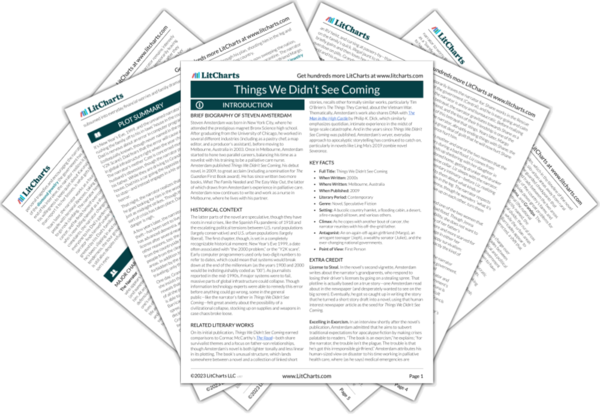AI ToolsNew
Tools to make learning and teaching easier
|
Previous
The Forest for the Trees
|
Things We Didn’t See Coming: Predisposed Summary & Analysis |
Next
The Profit Motive
|


Upgrade to unlock the analysis and theme tracking for all of Things We Didn’t See ComingThings We Didn’t See Coming!
Get LitCharts A+